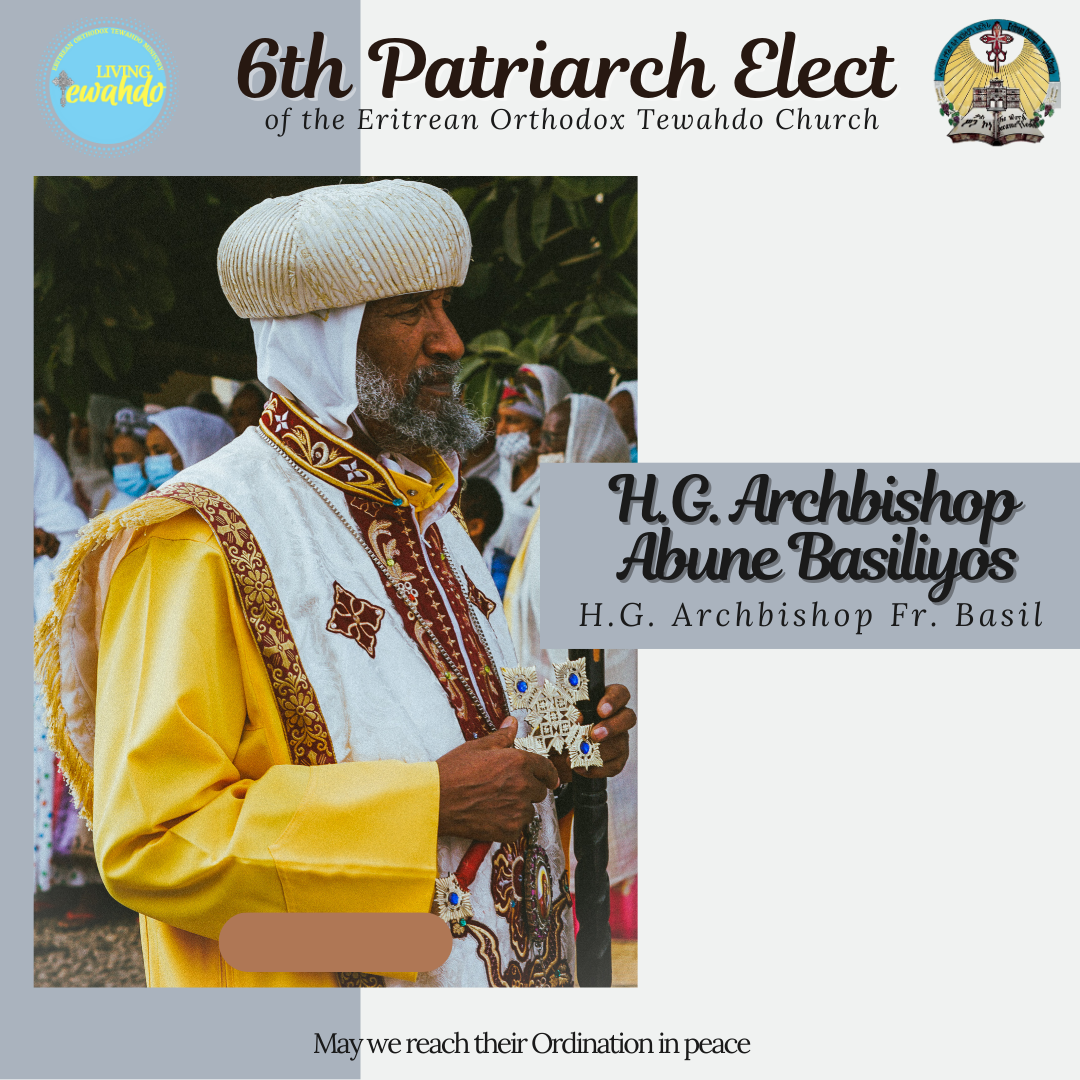The Eritrean Orthodox Tewahdo Church Tradition helps us live an intentional life with deep meanings rooted in the Holy Scriptures and Old Testament Gospels. The Church has always taught the necessity of penance for justification. She has instituted Lent as remembrance of the forty days fast of our Blessed Lord in the desert and as a means of sanctification for her children.In accordance with the chronolgy of the gospel account of the last of Our Lord’s mortal life, Holy Week (Semune Himamat) in which all the faithful re-lives and received graces from the fundamental mysteries of redemption. The Church in her wisdom gives us guidance on how exactly our Lord and Savior Jesus Christ wants us to sacrifice and praise Him, encourages us to make Christ our priority this Holy Week. Receive Him as He comes to us this Holy Week by the Holy Spirit, softly, humbly, but powerfully. If we you so, this week will be a time of renewal, of healing, and growth in your life, uniting you further with Him who is Life, the vanquisher of sin and death. Therefore, here are 6 custom guidelines the church gives for the followers of the faith during Holy week:
- Priests don’t carry their crosses and likewise we don’t kiss the cross this week. This is because the Cross’s honor and strength was revealed after the Crucifixion of our Lord and Savior. From Monday to Friday, during Passion Week, things are symbolized through Old Testament references. In the Old Testament, Christ had not yet been crucified on the Cross, so for that reason we do not kiss it. Furthermore, the sacraments of Confession and Baptism are not performed; funeral services (FitHat) are also not conducted.
- We don’t kiss each other in greetings. In order to show that we are not like Judas and to renounce his betrayal. Judas used a kiss to show the soldiers to arrest Christ therefore he betrayed Jesus Christ with a kiss. This does not mean that those that do greet each other with a kiss are in sin, but it is to symbolize that the peace will not last.
- The prayers of this week are distinctly chosen; they include, Psalms, Praise of the Virgin Mary (Wdasie Maryam), The Passions of the Cross (Himamate Mesqel), Dirsane Mahyewin, and chiefly the Holy Bible. The struggles (Gedlitat), descriptions, and stories of the angels and saints (Melki’a) are not recited as this week is consecrated for the remembrance of the sufferings of Christ only.
- During Passion week; we are to fast, prostrate, and pray even more than we’ve been doing throughout the Great Lent. We are to deny our fleshly desires and anything that fuels them. This is the time that Our Lord Jesus Christ was beaten until His wounds became one and His bones peaked out from His skin. The Passion week of sufferings is a week dedicated to remember Jesus’ torture and scourge for the sake of the salvation of human beings. Thus we are to offer prayers, prostration, and abstinence to share in His sufferings and His ultimate victory.
- As we know there are days we are NOT to prostate. These include major feast days during the month; St. Michael(12), St. Mary(21) and BeAle EgziAbhier (29); Saturdays and Sundays. However, during Passion Week our Church becomes highly passionate in prayer and prostration throughout the week despite the occurrence of feast days. This is because Passion Week is greater than all the church holidays. Moreover, it only happens once a year so we dedicate it to prostration and asking for forgiveness.
- Fasting during Passion Week is a bit different from the rest of the Great Lent. We are to fast until the stars fill the sky (7pm). Those who have the strength eat every other day; for example, if they fast all day Monday they eat after 7 pm on Tuesday. They continue to fast all day Wednesday and eat Thursday after the church service is done. Those who have strength also are to abstain from any kind of food from Thursday night both Friday and Saturday, ending Sunday past midnight (Tinsaie, Resurrection Sunday). Akflot is an extended period of fasting starting from Friday until midnight into Resurrection Sunday. Our Virgin Mother St. Mary along with the Apostles did not eat or drink from the time Jesus was taken and crucified until He resurrected. In line with this practice, for some Orthodox Tewahdo faithful from Thursday afternoon until Easter morning no morsel of food nor a drop of water enters the mouth . But those who have not the strength fast Saturday only. Akflot is known as the deep fasting days among the Eritrean Tewahdo church members.
May He accepts our fasting and prayers.
Without Infirmity and Sickness
without labor and tiredness
May You bring us to this time next year with joy and with peace.
May it be Blessed Holy Week!

